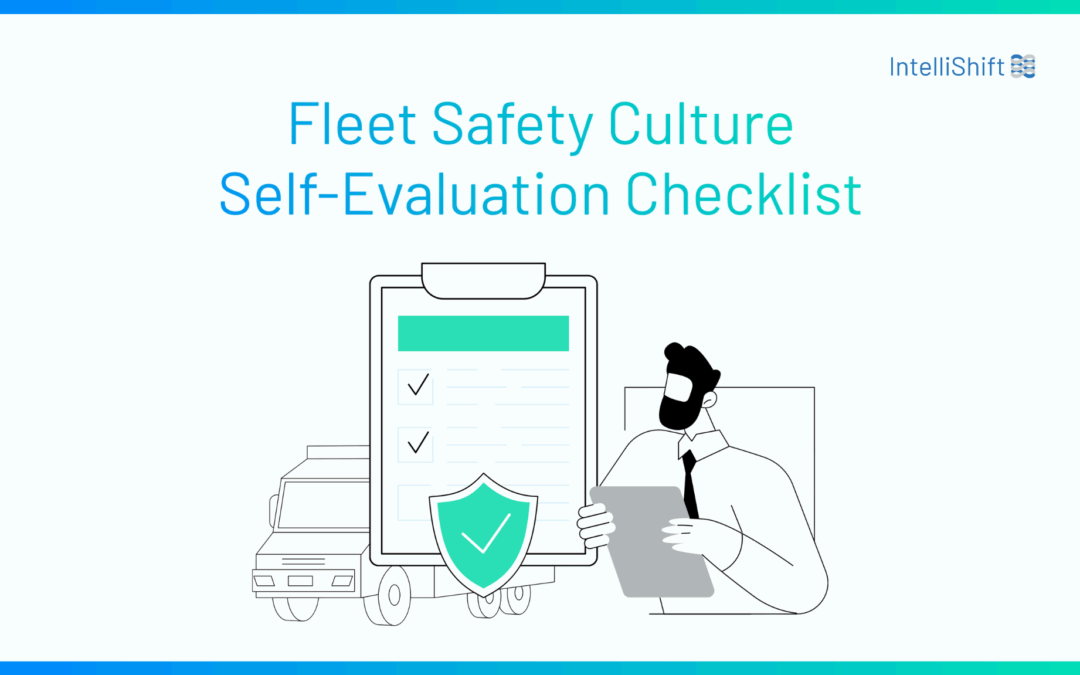What is Fleet Management Software?
Fleet management software is a specialized type of software designed to help businesses and organizations efficiently manage and monitor their fleet of vehicles. A fleet typically includes a range of vehicles such as cars, trucks, vans, buses, and even specialized vehicles like construction equipment or delivery vehicles.
How Does Fleet Management Software Work?
Fleet management software has emerged as an indispensable tool for businesses relying on vehicle fleets, revolutionizing operations through streamlined efficiency. Traditional methods, steeped in manual processes and disjointed systems, present challenges like inaccurate data, limited visibility, and inefficient resource allocation. However, the demand for real-time insights and cost-effective strategies has propelled the need for modern solutions.
Enter the game-changing concept of a unified fleet management platform, seamlessly integrating telematics, GPS fleet tracking, sensor data, and advanced analytics. This holistic approach empowers companies to proactively identify inefficiencies, optimize routes, manage fuel consumption, and enhance driver safety, leading to substantial cost savings and improved services. At the core of this transformation lies fleet management software, offering customizable features for real-time monitoring, automated maintenance alerts, performance analytics, and predictive maintenance algorithms to minimize downtime. Leveraging fleet management technology enables businesses to enhance operational efficiency, reduce costs, and deliver superior services, thereby gaining a competitive edge in the market.
Key Features of an Innovative Fleet Management Platform
Dashboard and Analytics
An easy to use dashboard and robust analytics provide fleet managers with real-time insights into various aspects of their fleet operations. They can monitor key performance indicators, track trends, and identify areas for improvement. This information empowers managers to make informed decisions quickly, allocate resources efficiently, and streamline operations to minimize downtime and waste.
GPS Fleet Tracking and Route Optimization
GPS fleet tracking allows fleet managers to monitor vehicle locations in real-time. This feature contributes to route optimization, ensuring that vehicles take the most efficient paths to their destinations. By minimizing unnecessary mileage and reducing idle time, route optimization lowers fuel consumption, decreases wear and tear on vehicles, and enhances delivery efficiency.
Vehicle Health Monitoring and Fleet Maintenance Scheduling
Constant monitoring of vehicle health helps fleet managers identify potential issues before they become major problems. This proactive approach reduces unplanned downtime, prevents costly breakdowns, and extends the lifespan of vehicles. With fleet maintenance scheduling, managers can ensure that regular servicing and inspections are performed at optimal intervals, preventing disruptions and reducing the likelihood of expensive repairs.
Driver Performance Monitoring and Coaching
Monitoring driver behavior through telematics and sensors helps identify inefficient driving habits such as rapid acceleration, harsh braking, and excessive idling. By coaching drivers to adopt safer and more fuel-efficient driving practices, fleet managers can improve vehicle longevity, decrease fuel consumption, enhance road safety, and reduce maintenance costs.
Fleet Fuel Management and Cost Optimization
Effective fleet fuel management involves monitoring fuel consumption, analyzing usage patterns, and identifying areas for improvement. By addressing factors like inefficient driving habits, idling time, and fleet vehicle maintenance, managers can significantly reduce fleet fuel costs. Implementing fuel-efficient strategies not only reduces operational expenses but also has positive environmental implications.
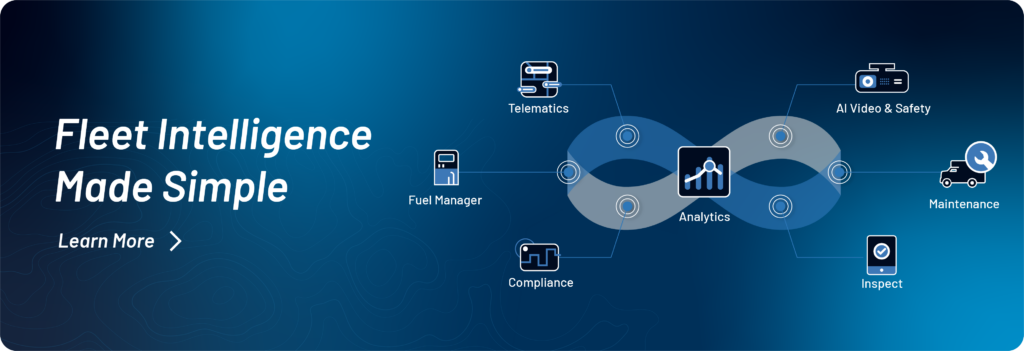
Seamless Integration and Scalability with Fleet Management Software
The integration of fleet management solutions with existing business systems is paramount for maintaining operational continuity and maximizing efficiency. IntelliShift recognizes this significance and offers a connected platform that effortlessly integrates with a wide array of third-party tools and software. This interoperability facilitates a cohesive ecosystem where data flows seamlessly between different systems, eliminating silos and enhancing overall visibility. Whether it’s fleet fuel management systems, OEM devices, or other specialized tools, IntelliShift’s fleet management platform acts as the linchpin, ensuring that crucial data is readily available for informed decision-making.
The scalability offered by IntelliShift’s fleet management platform aligns with the dynamic nature of businesses. As fleets grow and needs evolve, IntelliShift’s effortlessly expands to accommodate these changes. This scalability extends beyond merely accommodating more vehicles. It encompasses the ability to handle increased data volume, users, and operational complexity. This adaptability ensures that businesses don’t outgrow their fleet management solution but rather have a solution that evolves with them.
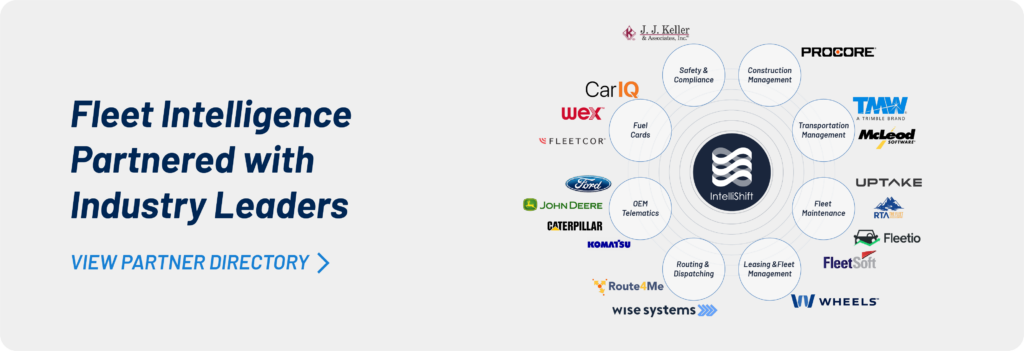
Case Studies on Fleet Management: Real-World Transformations
Through success stories like the examples linked below, it’s evident that a single connected platform enables businesses to elevate their fleet management strategies, streamline operations, and achieve tangible cost savings.
An environmental services company increased their visibility in the field and realized reduced fleet fuel costs, improved response times, increased asset utilization, and less time managing ELD compliance.
A construction company brought all its fleet data into a single platform streamlining their management of employees, billing, while protecting them from false claims and cost overruns.
A transportation company benefited from on-demand data with fewer accidents, therefore offering customers a safer, more reliable service. In parallel, insurance and fleet fuel costs came down, too.
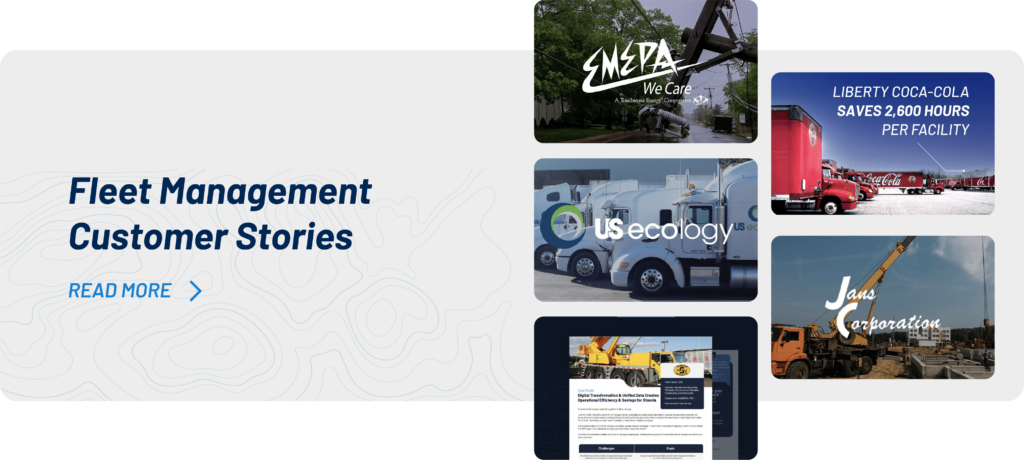
Fleet Management Software That Connects Operations is Fleet Intelligence
What is Fleet Intelligence?
IntelliShift embodies fleet intelligence by harnessing the power of data, analytics, and advanced technologies to optimize fleet operations. As a comprehensive fleet management solution, IntelliShift utilizes real-time data collection, analysis, and actionable insights to drive efficiency, enhance safety, and reduce costs across fleet management.
At the core of IntelliShift’s fleet intelligence is real-time monitoring, providing instant visibility into vehicle locations, statuses, and conditions. This enables fleet managers to respond swiftly to issues, adjust routes on the fly, and ensure timely deliveries. This action results in improved customer satisfaction and operational effectiveness.
The advanced data analytics capabilities of IntelliShift delve into the intricacies of fleet performance. By analyzing various metrics such as fuel consumption, driver behavior, and maintenance history, IntelliShift helps fleet managers uncover patterns, trends, and areas for optimization. This information empowers decision-makers to implement strategies that maximize fleet efficiency and minimize expenses.
What Are the Benefits of Fleet Intelligence?
One of IntelliShift’s standout features is predictive maintenance. By utilizing historical data and advanced algorithms, IntelliShift forecasts when vehicles require maintenance or repairs. This predictive approach prevents unscheduled downtime, reduces maintenance costs, and prolongs vehicle lifespans, contributing to significant operational savings.
IntelliShift’s fleet intelligence extends to driver behavior analysis, enhancing safety and reducing risks. By monitoring factors such as harsh braking, speeding, and idling, the platform provides insights that enable proactive driver coaching. This results in improved driver performance, decreased accident rates, and optimized fuel consumption.
Additionally, IntelliShift excels in route optimization, a critical aspect of fleet efficiency. With GPS tracking and data-driven insights, the platform calculates the most efficient routes for vehicles. This minimizes mileage, cuts fuel consumption, and streamlines delivery schedules. Fleets see lower operational costs and heightened service quality.
“I believe that AI will be the next evolutionary step for fleet managers across the globe. Fleet managers tend to work with large amounts of data, and AI can be harnessed to analyze this data and generate insights that can help to improve fleet business metrics and boost operational efficiencies,” said Forbes Contributor, Aliaksandr Kuushynau.
Through its integration of technology, data analysis, and predictive capabilities, IntelliShift exemplifies the concept of fleet intelligence. By transforming data into actionable insights, IntelliShift enables businesses to make informed decisions, drive operational excellence, reduce costs, and enhance overall fleet performance. In essence, IntelliShift’s commitment to fleet intelligence empowers organizations to adapt to evolving industry demands while maximizing their fleet’s potential.
What is the Best Fleet Management Software?
It’s time to see for yourself. Traditional fleet management often grapples with manual processes, lack of real-time insights, and fragmented data. IntelliShift’s comprehensive solution eliminates these pain points by offering a single connected platform that integrates advanced technologies, such as telematics, IoT sensors, and data analytics. This cohesive ecosystem empowers businesses to gain real-time visibility into their fleet’s performance, allowing them to make informed decisions promptly.
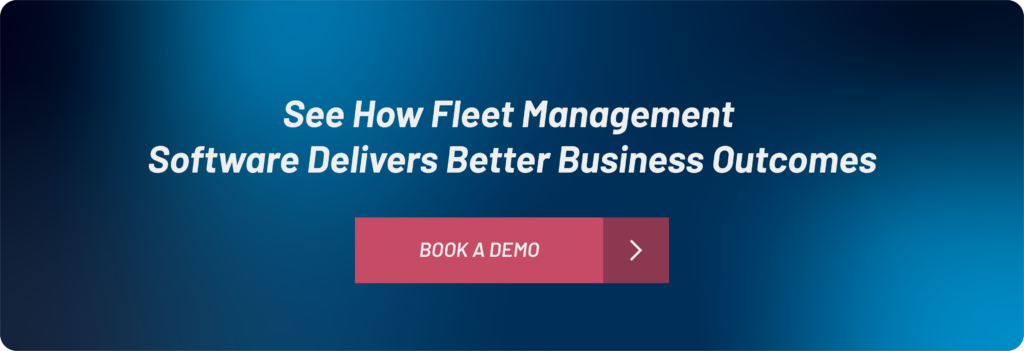



![Episode 50 Thumbnail Erin celebrates building the fleet community with 50 episodes and 11K followers on LinkedIn [Podcast]](https://intellishift.com/wp-content/uploads/2023/08/WIFMS-Cover.jpg)


